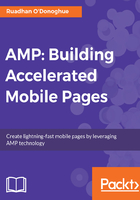
Mobile technology advances won't make websites fast
A commonly held view is that, as mobile technology improves, the performance problem will solve itself. On the face of it, this seems like a reasonable assumption. It's been 10 years since the original iPhone was unveiled. Back then, it had only a 2G network connection and a 412 MHz ARM CPU to deliver the web to its owner. Today, the newest iPhone model comes with a high-speed LTE network connection, and Apple's newest multi-core A11 CPU with a clock-speed of several GHz. The latest Android devices run on octa-core CPUs.
With these advances, the mobile devices in our pockets have evolved into super-computers. Surely then, mobile web performance is not a problem for these little power-houses. So why does the world need AMP now?
Unfortunately, these technology advances don't always translate into performance improvements for a number of reasons:
- The performance gap is getting wider: While newer, faster, and better mobile devices are shipping every month, only a portion of these will ever be used by your audience. The rest of your visitors will be relying on older and slower devices. Recent research from DeviceAtlas indicated that the original iPhone 2G is still being used to browse the web. This means that on average, the performance gap between low-end and high-end devices is increasing.
- Physical limitations of mobile technology: Device specifications aren't everything. Faster CPUs run hotter, and there is no active cooling in mobile devices. They have to dissipate heat through layers of plastic, the battery, electronics, and the screen. When they get too hot, they have to throttle down and shut off cores. So even if a user has the newest, fastest iPhone, there's no guarantee it will be running all its cores when they're needed.
- Lie-Fi and slow cell networks: Wi-Fi networks are often oversubscribed or backed by a poor internet connection: the user's device might have full signal bars, but really the connection sucks! The same goes for cell networks. Just because a device reports that it has an LTE connection, doesn't mean it's a fast connection.
Despite technology advances, unless you take great care, your web pages can end up being slow and frustrating on mobile devices.
AMP exists because of the realization that faster devices and networks are not going to fix performance on mobile. Instead, the problem needs to be fixed from the other end: websites need to be faster. But this is only half the story.